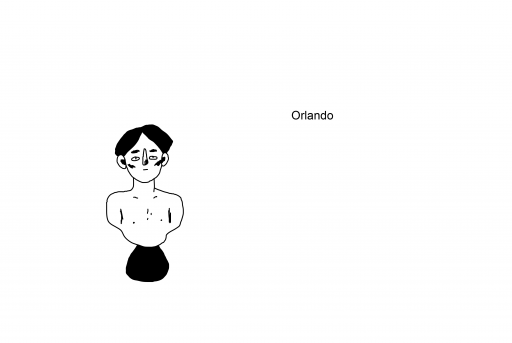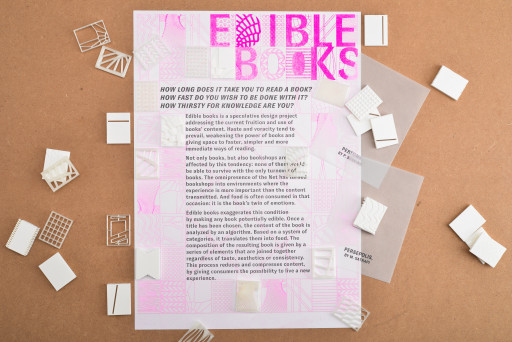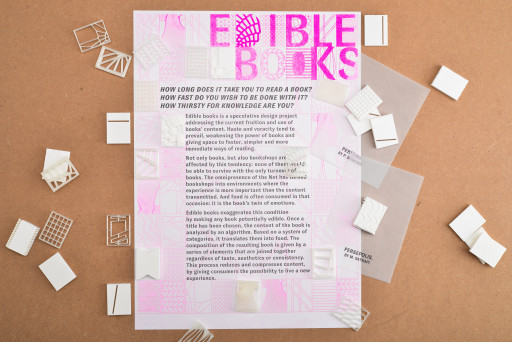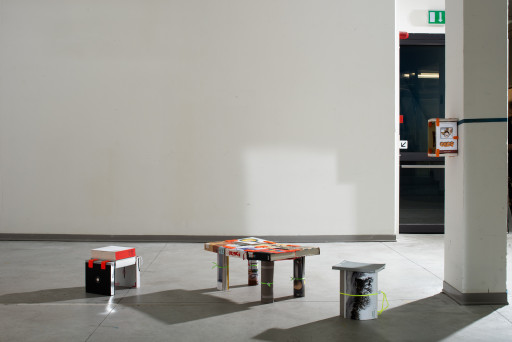After the end of the book
BA Major Design
BA Visual Communication Project
Winter semester
What happens after the end of a book? And after the end of all the books?
Are the new digital, downloadable, audible forms of books destroying the old ones? Or is it just their material support that risks to disappear, while the stories will reincarnate in new media forms? And if it is true that the bodies of the books are dying, what are we going to do with those corpses?
It is on these provocative premises that the project “After the end of the books” is based. The students reacted, rethinking the book in terms of its materiality, spatiality and structure. The theoretical background of the project questioned indeed the transformation of the form and function of the book in the light of new technological developments. Nevertheless, the students proudly reclaimed their roots on their time, through a playful and irreverent post-bibliophile approach. Someone is using books as raw material for construction (MobiLetti); someone is overturning the myth of the edifying book, looking for most hated books in individual biographies (Bad Books); someone is extremising the ‘eventification’ of the book by reducing it into edible bites (Edible books); someone is focusing on the dematerialisation of the support and the disappearance of the manuscript, underlining how impossible is for a reader to recover the errors, the second thoughts and the erasures of an author (Manuale di Cyberfilologia); others are making the linear and consistent structure of a book explode in different fragments that untidily spread among different platforms and media (Edistratti); someone is working on intimate though social narrative forms (Orlando); someone else is augmenting the book by implementing it through interactive visual tools (Tenda) or translating it in architectonic metaphors (Going through); and finally someone else is designing an on-demand service to supply a client with a tailor-made documentation of a virtual love story (Posta desiderata).
The books are changing form, they expand, they disguise, they can be eaten, they can be worn and they evolve, to adapt themselves to a new, apparently, hostile environment.





